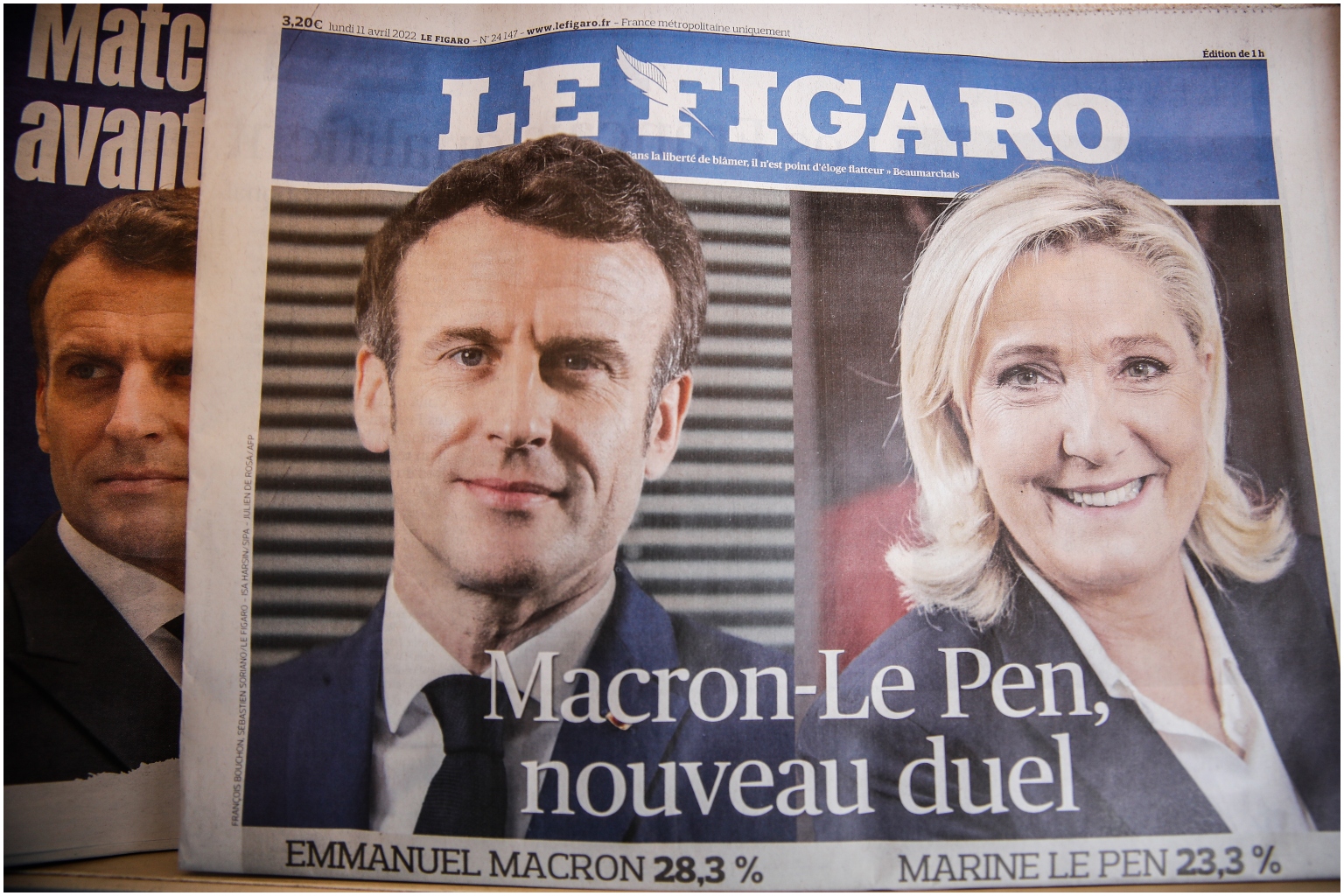For subscribers
Global Affairs
France on the march, destination unknown
The outcome of the first round of presidential elections is a worry for Macron and for the Western alliance as well.
Sign up now: Get ST's newsletters delivered to your inbox

French President Emmanuel Macron will face Ms Marine Le Pen on April 24 for the final round of the presidential election.
PHOTO: EPA-EFE
President Emmanuel Macron is reaching out to left-wing voters. His team was quick to remind French voters of his rival's links with Russian President Vladimir Putin. The offensive has begun to take down Ms Marine Le Pen, barely 24 hours after the results of the first round of the presidential election were out.
"I want to reach out to anyone who wants to work for France. I am ready to invent something new to bring together convictions and sensitivities," Mr Macron promised yesterday. In theory, he has a better chance of winning another term in office when the second and decisive round of French elections takes place in two weeks. But as his frantic appeal to the electorate shows, Mr Macron knows he has a serious fight on his hands.


